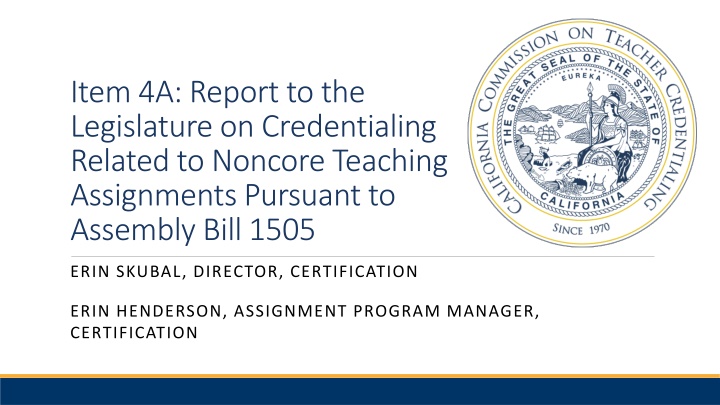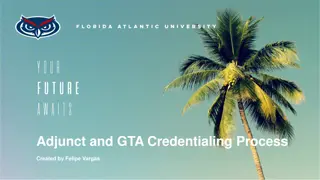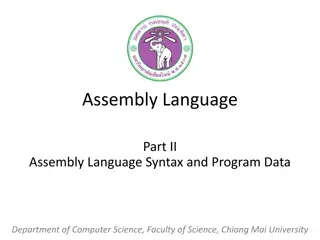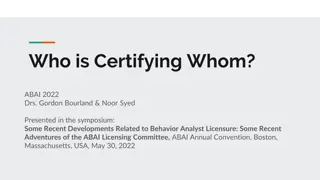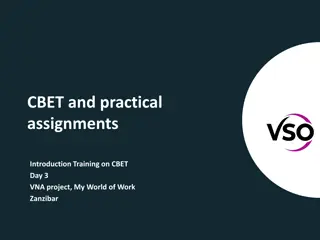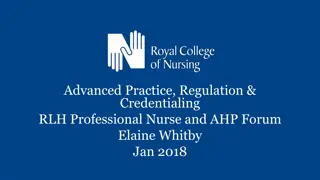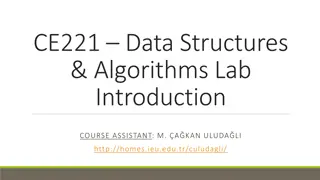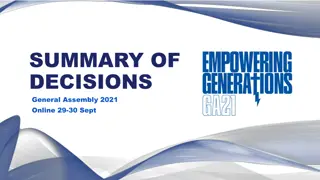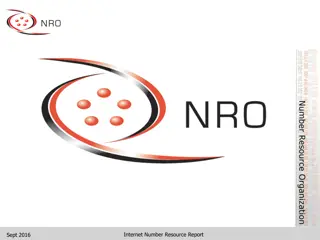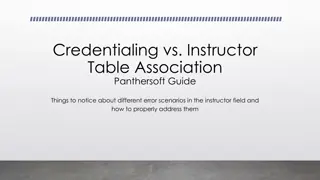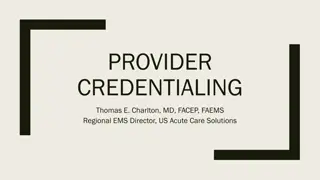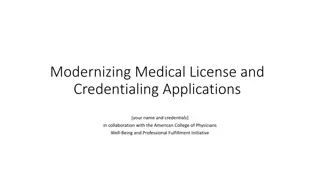Report on Credentialing for Noncore Teaching Assignments under Assembly Bill 1505
This report discusses credentialing practices for noncore teaching assignments in the education sector, focusing on charter and non-charter schools. The findings reveal challenges in assigning appropriately credentialed educators, particularly in core classes. Survey respondents expressed concerns about staffing shortages in noncore classrooms and the adequacy of existing credentialing pathways. Overall, the report highlights the need for improved strategies to address credentialing requirements in noncore subjects.
Download Presentation

Please find below an Image/Link to download the presentation.
The content on the website is provided AS IS for your information and personal use only. It may not be sold, licensed, or shared on other websites without obtaining consent from the author.If you encounter any issues during the download, it is possible that the publisher has removed the file from their server.
You are allowed to download the files provided on this website for personal or commercial use, subject to the condition that they are used lawfully. All files are the property of their respective owners.
The content on the website is provided AS IS for your information and personal use only. It may not be sold, licensed, or shared on other websites without obtaining consent from the author.
E N D
Presentation Transcript
Item 4A: Report to the Legislature on Credentialing Related to Noncore Teaching Assignments Pursuant to Assembly Bill 1505 ERIN SKUBAL, DIRECTOR, CERTIFICATION ERIN HENDERSON, ASSIGNMENT PROGRAM MANAGER, CERTIFICATION
Background Noncore Content: Agriculture Art Business Dance Health Home Economics Industrial and Technology Education Music Physical Education Theater World Languages Electives that fall outside of any single subject area (e.g., Homeroom or Study Hall) Subjects that are subsumed under both a core and noncore (e.g., Humanities)2 Assembly Bills (AB) 1219 and 1505 aligned charter and non-charter school credentialing requirements AB 1505 granted temporary assignment flexibility for those teachers that were already employed at charter schools This flexibility affects charter school educators in noncore teaching positions
Research Examined noncore assignment practices through analysis of: Assignment monitoring data for the 2020-21 school year A survey released to County Offices of Education, districts, charter, and non-charter schools 3
Findings A comparison of core and noncore courses demonstrated more misassignments in core classes Charter schools have more challenges assigning appropriately credentialed educators in core classrooms, but less difference between the two classrooms 4
Survey Respondents Either agreed (35%) or strongly agreed (30%) that charter schools will experience staffing shortages in noncore classrooms once the flexibility expires in 2025 (Figure 6) Are most likely to recruit less than fully prepared educators on emergency permits, intern credentials, or waivers when a fully credentialed educator is not available (Figure 7) Only 18% agreed or strongly agreed that existing credentialing pathways were sufficient, while 39% disagreed or strongly disagreed that they met assignment needs (Figure 9) 61% of respondents replied affirmatively when asked if respondents if staffing issues in noncore courses leads to LEAs being unable to offer these courses (Figure 10) 7
Conclusions Only one year of assignment data the 2020-21 school year - was available for this report This school year was impacted by the COVID-19 pandemic, which affected teacher assignments and could have produced anomalous results Further analysis of assignment trends after the completion of monitoring through 2025 would produce a better idea of what the landscape for teacher assignments in noncore classrooms truly is 8
